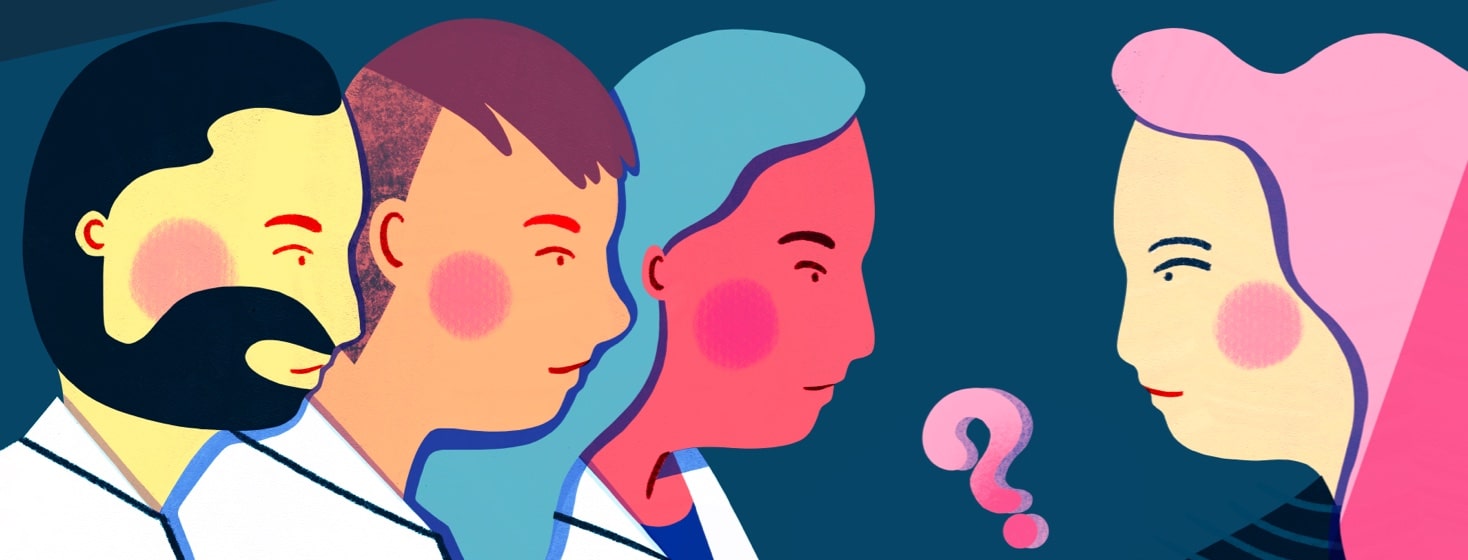The Future of HIV Care
HIV first started spreading widely in the United States in the 1980s. This means that some of the first people to work with HIV have been in the field for around 40 years. They include researchers, healthcare professionals, and patient advocates.1,2
But after 40 years or more of working with HIV, many of these people are starting to retire. The number of US healthcare providers who specialize in treating people with HIV is decreasing. Luckily, there are still many quality care options available.1,2
Why are the numbers of HIV specialists decreasing?
The American Academy of HIV Medicine predicts that about a third of HIV specialists will stop practicing HIV medicine over the next 10 years. This is because of several factors including:2
- Older specialists retiring
- Lack of new specialists entering the field of HIV care
- Lower pay for HIV care
Do newer providers have the same knowledge?
Even if there are fewer healthcare professionals focused on HIV, there are still many people aging with HIV that need care. This raises the question of who will provide care for people living with HIV (PLWHIV) in the future. Luckily, the new generation of healthcare providers is very prepared to treat PLWHIV.2,3
Decades of research have made knowledge about HIV more available. This has made it easier to train medical professionals in HIV medicine, even if they are not specialists. Research shows that doctors who had training in HIV care were successful in treating PLWHIV, even though they were not HIV specialists.2,3
Who can treat HIV?
Over time, the type of care that PLWHIV need has changed. At the start of the epidemic, there was no cure. At that time, treating HIV was much more demanding. Thanks to antiretroviral therapy, this has changed. Antiretroviral drugs have helped make treating HIV about managing a chronic condition.1,2
Because of these changes, the healthcare providers that can treat HIV are now more diverse. The person treating you could be a:1,2
- Nurse practitioner
- Physician assistant
- Primary care physician
In addition to seeing a different type of healthcare professional, another option is to look for providers that are farther away. Telemedicine has made it easier to see a provider who is not nearby. A telemedicine appointment might be over the phone, with video calls, or messages. It may be possible to see an HIV specialist remotely without having to travel.4
Additionally, there is a wide range of other specialists that can contribute to HIV care. A specialist may not know as much about HIV. But they will be knowledgeable in treating specific complications that fall under their field of specialty. The specialist that is right for you depends on your complications. They might include:4
- Lung doctors (pulmonologist)
- Heart doctors (cardiologists)
- Therapists or counselors
- Psychiatrists
- Pharmacists
What do these trends mean for PLWHIV?
It can be stressful to learn that your healthcare provider may be retiring or leaving the field. This is especially true if you have built up a relationship with them over time. In this scenario, consider making a proactive plan.2,3
Ask your current provider for recommendations. This could be for other HIV specialists, different types of healthcare providers, or other specialists. You may want to compare a few options to find your next provider. It may take some effort, but there are many talented healthcare providers that can be a good fit.2,3

Join the conversation